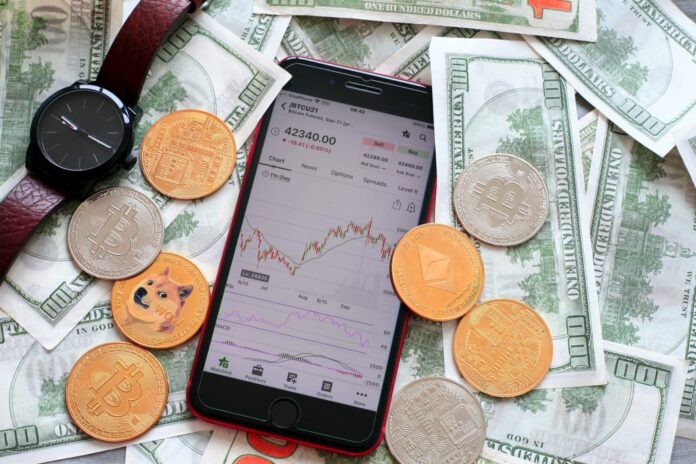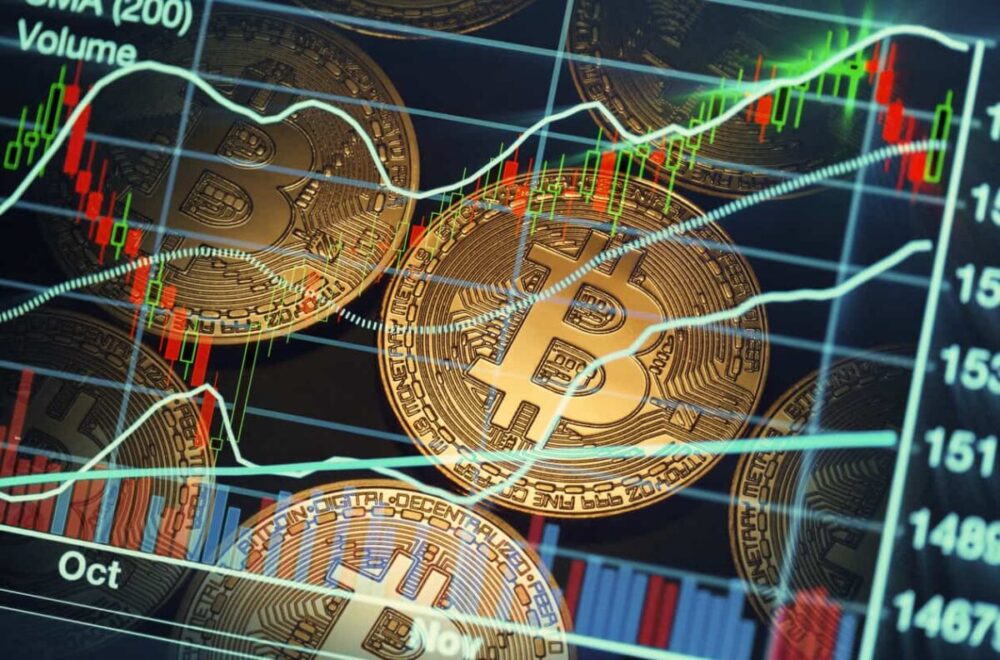
Bitcoin, the world’s first and most popular cryptocurrency, has revolutionized the financial landscape. Its decentralized nature, coupled with its potential for high returns, has made it a hotbed for traders worldwide. However, Bitcoin trading is not for the faint-hearted. It’s a complex process influenced by a myriad of factors, and understanding these elements is crucial for anyone looking to venture into this market.
The importance of understanding these influencing factors cannot be overstated. Bitcoin’s price is highly volatile, and its value can fluctuate wildly in a matter of hours. This volatility can lead to significant profits, but it can also result in substantial losses. Therefore, a deep understanding of the factors that influence Bitcoin’s price is essential for making informed trading decisions and mitigating potential risks.
Market Demand and Supply
At the heart of Bitcoin’s price fluctuations lies the basic economic principle of demand and supply. When the demand for BTC exceeds its supply, the price increases. Conversely, when the supply of BTC surpasses its demand, the price decreases.
Several factors can affect the market demand for Bitcoin. These include its perceived value as a digital asset, its acceptance as a form of payment, and its potential for high returns. Additionally, geopolitical events, economic instability, and technological advancements can also drive demand. For instance, during periods of economic uncertainty, investors may flock to BTC as a “digital gold” hedge against traditional market volatility.
On the other hand, the supply of BTC is influenced by factors such as mining difficulty and rate of new BTC creation. Bitcoin’s supply is capped at 21 million coins, and new coins are created through a process called mining. However, the rate of new BTC creation is halved approximately every four years in an event known as the “halving.” This event can lead to a decrease in supply, potentially driving up the price if demand remains constant or increases.
Technological Advancements

The world of Bitcoin trading is inextricably linked with technology. Technological advancements have a profound impact on the BTC market, influencing its price and the way it’s traded.
The emergence of new platforms and trading tools has democratized Bitcoin trading, making it accessible to a wider audience. These platforms offer features like automated trading, advanced charting tools, and leverage trading, which can enhance trading efficiency and potentially increase profits. However, they can also introduce new risks, making it essential for traders to understand how these tools work.
Blockchain technology, the backbone of BTC, also plays a significant role in its value. As more industries recognize the potential of blockchain for enhancing transparency and reducing fraud, the demand for BTC, the pioneer of this technology, could increase, potentially driving up its price. The best part is that tech innovations will not stop which you can see at https://quantumprimeprofit.org/.
Regulatory Environment
Regulations play a pivotal role in the cryptocurrency market. They can legitimize Bitcoin’s status as a financial asset, influence its demand and supply, and impact its price.
Government policies towards BTC vary widely across the globe. Some countries embrace it, while others ban it outright. These policies can affect Bitcoin’s demand. For instance, if a major economy bans BTC, it could lead to a decrease in demand and a subsequent drop in price.
The global regulatory landscape is continually evolving, with implications for Bitcoin traders. Regulatory clarity can increase Bitcoin’s acceptance and potentially drive up its price. Conversely, regulatory crackdowns can create uncertainty, potentially leading to price drops. Therefore, staying abreast of regulatory developments is crucial for BTC traders.
Macroeconomic Factors

Bitcoin doesn’t exist in a vacuum. It’s influenced by the broader financial markets and various economic indicators. Understanding these relationships can provide valuable insights into potential price movements.
Bitcoin’s correlation with traditional financial markets is a topic of ongoing debate. Some argue that BTC behaves like a ‘digital gold,’ providing a safe haven during market turbulence. Others contend that Bitcoin is still too volatile and unregulated to be considered a reliable store of value.
Economic indicators like inflation and interest rates can also influence Bitcoin prices. For instance, when inflation rates are high, fiat currencies lose purchasing power, and assets like BTC can become more attractive. Similarly, low-interest rates can make riskier assets like Bitcoin more appealing compared to traditional low-yield investments.
Media and News
The media plays a significant role in shaping public perception of Bitcoin, and consequently, its price. Positive news can spark interest, driving up demand and price. Conversely, negative news can create panic, leading to sell-offs and price drops.
However, not all news should be treated equally. The cryptocurrency space is rife with misinformation and hype. Traders must learn to identify reliable sources and distinguish between significant news and noise. This discernment can be the difference between making a profitable trade and falling for a misleading headline.
Investor Sentiment
Investor sentiment, the overall attitude of investors towards a particular asset, plays a crucial role in Bitcoin trading. It’s a psychological aspect that can drive market trends, often independent of fundamental factors.
Fear, uncertainty, and greed are powerful drivers in the market. They can create price bubbles and crashes, often leading to irrational buying or selling decisions. Tools like the Fear & Greed Index can help traders gauge the market’s emotional state and make more informed decisions.
Institutional Adoption

Institutional investors, such as hedge funds and pension funds, have a significant impact on the Bitcoin market. Their large-scale investments can drive up demand and price. Moreover, their participation lends credibility to BTC, potentially attracting more investors.
Corporate interest in Bitcoin is also a key influencing factor. Companies investing in Bitcoin or accepting it as payment can boost its legitimacy and demand. For instance, when Tesla announced its BTC investment and acceptance for car purchases, it sparked a significant price rally.
Technological Risks
Bitcoin trading is not without its risks. Security concerns, such as hacking and fraud, can affect Bitcoin prices. High-profile exchange hacks can shake investor confidence, leading to price drops.
Potential vulnerabilities in cryptocurrency exchanges and wallets can also pose risks. Traders must ensure they use secure platforms and follow best practices to safeguard their assets.
Environmental Impact
The environmental impact of BTC mining is a hotly debated topic. Critics argue that the energy consumption of BTC mining is unsustainable, which can influence market sentiment and impact Bitcoin’s price.
Green initiatives in the BTC space, such as transitioning to renewable energy for mining operations, can positively influence market sentiment. Traders need to stay informed about these developments as they can impact trading dynamics.
Geopolitical Events
Geopolitical events, such as international conflicts and trade policies, can influence Bitcoin’s value. For instance, during times of geopolitical unrest, BTC can serve as a ‘digital gold,’ providing a safe haven for investors.
Long-term Outlook
Understanding the factors influencing Bitcoin’s price is crucial for assessing its long-term outlook. While it’s impossible to predict with certainty, analyzing these factors can provide insights into potential future scenarios.
Diversification and risk management are key for sustainable trading strategies. While BTC has the potential for high returns, it’s also highly volatile. Traders should consider their risk tolerance and investment goals before diving into the Bitcoin market.








